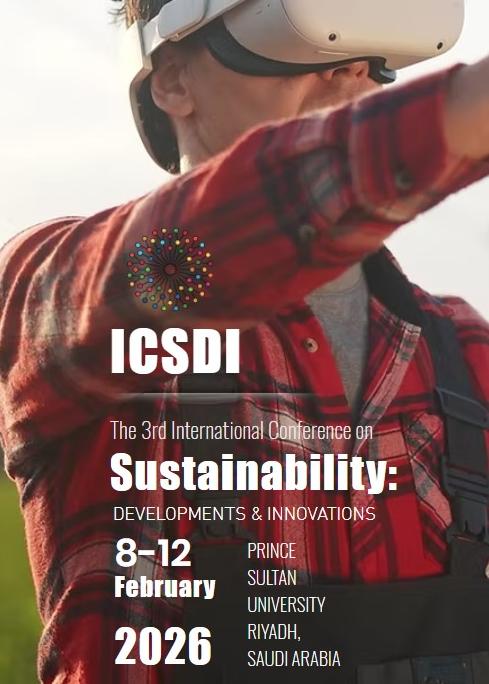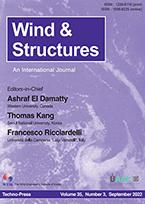7th Int. Workshop on Socio-Technical Aspects in Security and Trust
STAST 2017
- URL: http://stast.uni.lu
- Event Date: 2017-12-04 ~ 2017-12-05
- Abstract Submission Date: 2017-09-20
- Submission Date: 2017-09-25
Computer Security & Cryptography Security & Trust & Testing
7th Int. Workshop on
Socio-Technical Aspects in Security and Trust
(STAST) - http://stast.uni.lu
December 4 or 5, 2017
(date under negotiation)
----------------------------------------------------------
Affiliated with the
Annual Computer Security Application Conference (ACSAC 2017)
San Juan, Puerto Rico, USA
**********************************************************
IMPORTANT DATES
----------------
Title and Abstract: September 20, 2017, 23.59 AoE (= UTC-12)
Full Paper: September 25, 2017, 23.59, AoE (= UTC-12)
Notification: October 30, 2017
Camera Ready: November 20, 2017
SUBMISSION
----------
We accept:
(1) Full Papers;
(2) Position Papers;
(3) Case Studies For more details, please visit our web page:
http://stast.uni.lu
CONCEPT AND GOAL
----------------
Successful attacks on information systems often combine social engineering practices with technical skills. Research in social sciences and usable security has demonstrated that insecure behavior can be justified from cognitive, emotional, and social perspectives and to improve security, technology must adapt to the users. However, finding the right balance between the technical and the social security measures remains largely unexplored, which motivates the need for this workshop.
There is no established holistic research in security, and the respective communities tend to offload on each other parts of problems that they consider to be out of scope, an attitude that results in deficient or unsuitable security solutions.
The workshop intends to stimulate an exchange of ideas and experiences on how to design systems that are secure in the real world where they interact with non-expert users. It aims at bringing together experts in various areas of computer security and in social and behavioral sciences.
PROCEEDINGS
-----------
The final proceedings will be published with the ACM International Conference Proceedings Series
WORKSHOP TOPICS
--------------
* Requirements for socio-technical systems
* Feasibility of policies from the socio-technical perspective
* Threat models that combine technical and human-centred strategies
* Technical and social factors that influence decision making in security and privacy
* Balance between technical measures and social strategies in ensuring security and privacy
* Studies of real-world security incidents from the socio-technical perspective
* Social factors that influence changes in organizations security policies and processes
* Lessons learned from holistic design and deployment of security mechanisms and policies
* Models of user behaviour and user interactions with technology
* Perceptions of security, risk and trust and their influence on human behaviour
* Interplay of law, ethics and politics with security and privacy measures
* Social engineering, persuasion, and other deception techniques
* Socio-technical analysis of security incidents
* Strategies, methodology and guidelines for socio-technical and cyber-security intelligence analysis
We welcome qualitative and quantitative research approaches from academia and industry
INVITED SPEAKER
-----------------
Robert L. Biddle (Carleton University)
ORGANIZINGATION
--------------------
** Programme Chairs
Zinaida Benenson (University of Erlangen-Nuremberg) Daniela Oliveira (University of Florida)
** Workshop Organizers
Giampaolo Bella (University of Catania)
Gabriele Lenzini (University of Luxembourg)
** Programme Committee
Adam Aviv (United States Naval Academy)
Matt Bishop (University of California, Davis)
Lynne Coventry (University of Northumbria)
Sarah Diesburg (University of Northern Iowa)
Natalie Ebner (University of Florida)
Ben Edwards (IBM)
Thomas Groß (University of Newcastle)
Markus Jakobsson (Agari)
Lydia Kraus (Technische Universität Berlin)
Kat Krol (University of Cambridge)
Mohammad Mannan (Concordia University)
Brandon Matthews (MIT Lincoln Laboratory)
Maryam Mehrnezhad (University of Newcastle)
Simon Parkin (University College London)
Sasa Radomirovic (University of Dundee)
Karen Renaud (University of Glasgow)
Volker Roth (Freie Universität Berlin)
Scott Ruoti (MIT Lincoln Laboratory)
Jessica Staddon (Google)
Julie Thorpe (University of Ontario Institute of Technology)
Melanie Volkamer (Karlstad University)
Chenxi Wang (Twistlock)
Pamela Wisniewski (University of Central Florida)
Rick Wash (Michigan State University)
Jeff Yan (University of Lancaster)














